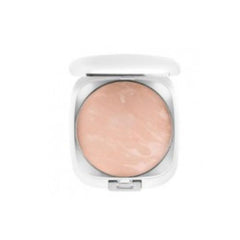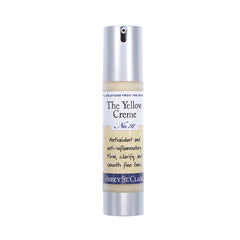Happiness. Life lessons from a pandemic.
By Margaret Hardy|
“I’ve spent four weeks hanging out with myself and I am so sorry to every person I have ever spent time with.” “This quarantine made me realize I have no real hobbies besides going out to eat and spending money.” “Being home together has allowed my husband and me to have a lot of time to discuss things and we decided we don’t want to have children. We will be telling them tonight at dinner.” |
Inbox musings show there is nothing like a viral life of house arrest dictate to engender bouts of forced introspection. Socrates said “The unexamined life is not worth living,” but life has a way of happening when we’re too busy to notice. It is the fortunate person who exits the quarantine with some new measure of self-knowledge and perspective.
Ask what they desire from life, ninety percent of people will reply, “I want to be happy.” Asked to define happiness, the answers become more variable. One person’s trip to Italy is another person’s Harley. Someone actually took the time to figure this out.
Gretchen Rubin was a successful lawyer married to a successful lawyer with two lovely daughters, living well in New York City. Sounds like a recipe for happiness, except it wasn’t. She left her legal career for a year to determine what mattered most in life and record the journey. The Happiness Project was born.
"Happiness is hard work until it isn’t."
Rubin’s yearlong search for happiness was divided into sets of resolutions to pursue each month. Avoiding nebulous abstractions (be a better person) for concrete goals (no technology after 7 pm), she targeted areas with high potential to improve daily happiness: relationships, money and vitality, structuring time (work, play, hobbies), attitude (paying attention, perspective), and living in the now.
Accountability was critical as we usually overestimate our virtues and underestimate our faults. What we monitor we manage so charts and checkmarks gauged progress. Happiness is hard work until it isn’t.
Resolution: Boost Energy.
Personal vitality is Rubin’s foundation for a satisfied life. Feeling energized leads to more engagement in all areas. As trite as it may sound, getting enough sleep, pursuing a balanced diet, and moving more are essential. Lack of sleep slows our metabolism (weight gain is related to insufficient sleep), dulls our senses and memory, and weakens our immune system. Physical activity at any level outdoors raises energy levels, enhances our psyche, and improves overall health.
Rubin’s sinkhole of energy was clutter sitting around waiting to be sorted. The main culprits: Clothes, books, and “stuff.” One study shows that sorting unnecessary clutter saves up to 40 percent of housework.
Clothes are tough to let go, but let’s face it, you actually only wear two of those eight pairs of black pants. A tidying guru of closet clutter advises the removal of one item before a new purchase is added. Yikes! But guess what? It works.
Papers, books, and magazines seem prone to spontaneous generation and require constant vigilance. My husband once observed that our house would be really neat if we were illiterate. True. An ever-present Goodwill box receives completed books, unworn clothes, and stuff. When full, it is delivered before second thoughts intrude. Items are rarely missed.
Mental clutter also sucks up energy as unfinished tasks haunt us. If something can be accomplished in a minute, do it now. Make to-do lists and relish crossing off completed items. You will be happier.
Resolution: Family & Friends
Insight Number One: You cannot change others, only yourself.
Insight Number Two: What you do every day matters more than what you do every once in a while.
Rubin’s guide in this area was French author Pierre Reverdy’s observation that there is no such thing as love, but rather only proofs of love. Act the way you want to feel. Practice daily acts of kindness. Keep in touch with friends; remember birthdays. Refrain from negativity, nagging, and nitpicking. Most importantly, no keeping score and no expectation of anything in return. The surest way to be happy is to make others happy. And the best way to make others happy is to be happy yourself.
Resolution: Buying happiness.
Money cannot buy happiness. Yeah, right, you say. Try eating happiness you say. A 60 inch television sure seems to deliver happiness. Well, yes, and Rubin admits that money can buy things that make you happier. Mostly though, money is security. It keeps the wolves from the door, but once our needs of shelter and sustenance are met, what we do with money is telling.
"Abraham Lincoln said most folks are about as happy as they want to be."
It is especially in terms of money that people often forget that happiness is not a zero-sum game. Barring misdeeds, another’s financial good fortune is not robbing your pocket. We once gave one of our sons a plaque that reads Happy is the man who wants what he has. Most people would be happier if instead of comparing themselves to others – I have a scooter while he has a Mercedes – they recognized needs from wants. Never love anything that can’t love you back.
It is naïve to think happiness is constant, and even our Founding Fathers only guaranteed its pursuit. Life is often not fair, but we get to choose our response. Abraham Lincoln said most folks are about as happy as they want to be. Happy people do not put their happiness in the hands of others or things, do not look on themselves as victims, but live doing the best they can with what they have. You are fortunate if you have people to love and are loved in return, but sometimes, “… [you must] plant your own garden…. instead of waiting for someone to bring you flowers.”
The days are long but the years are short. When you awaken each morning, be grateful; many don’t. Smile more. Learn something new. Examine each day; jettison any aspects that drag you down. Learn to say no. Learn to say yes.
I tend to think of happiness as a sense of inner peace. Life is a marathon to find purpose and meaning beyond yourself. You need a reason to get up each morning. Strive to be better than you were yesterday, acknowledge your flaws, and when you fall short, forgive yourself. You will be happier.
Perhaps sheltering in place will cause more of us to pay attention to the gift of living. At the end of her days, French author Colette belatedly recognized this gift: “What a wonderful life I’ve had! I only wish I’d realized it sooner.”
This article first appeared in SOVA Living Magazine.
Leave a comment
Comments will be approved before showing up.
Also in Abbey St Clare Blog

The Wheel is Turning. Abbey St. Clare has Closed.
Hello Friends,
The wheel is turning. Transitions are on the horizon. It is with regret that after almost twenty years, Abbey St. Clare is winding down as retirement and a relocation take place in the near future. We will continue taking orders through September 15.

Fix These 5 Hair-Washing Mistakes For Healthier Hair
Is your hair feeling brittle? Scalp dry? Locks not as lustrous as you want them to be? It’s possible you’re damaging your hair with five hair-washing mistakes.
If you follow these guidelines, you will see significant improvement in your hair and scalp health.

Pamper Your Skin and Elevate Your Mood With Essential Oils
Have you ever caught a whiff of cinnamon and felt a boost in your mood instantly? Do you feel calmer and more at ease when using lavender lotion before bed? If you said yes, it’s not just a figment of your imagination!
Ask anybody who uses essential oils regularly, and they’ll probably agree: these natural botanicals can have powerful, positive effects on your mood and overall wellness.



